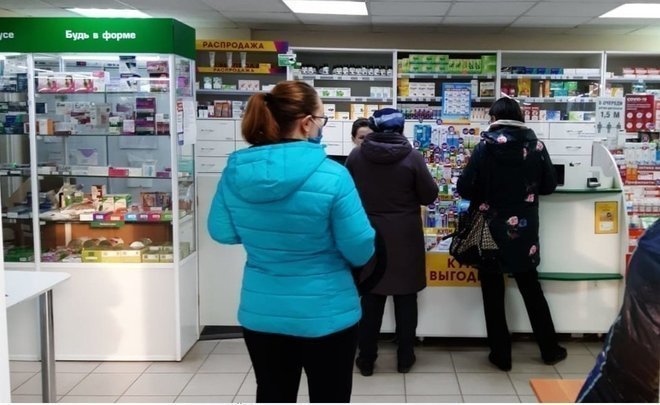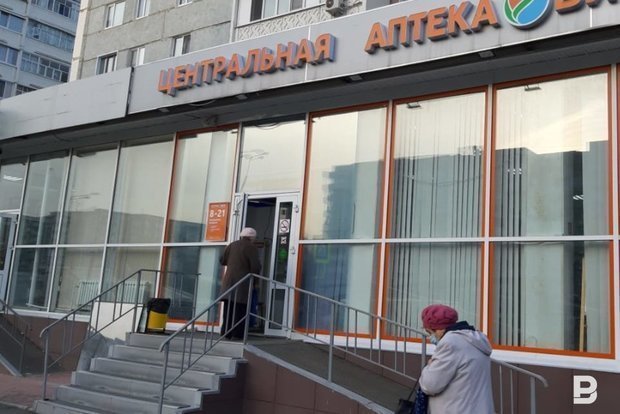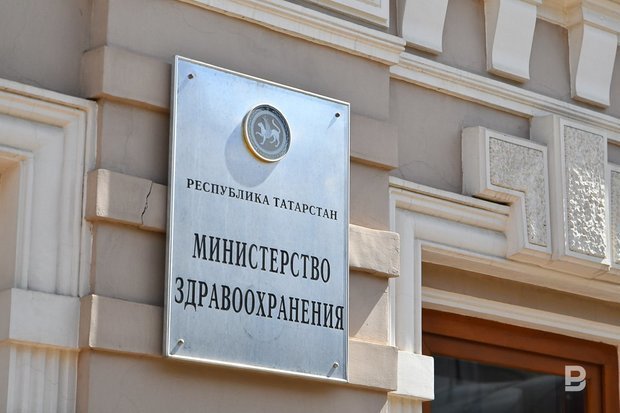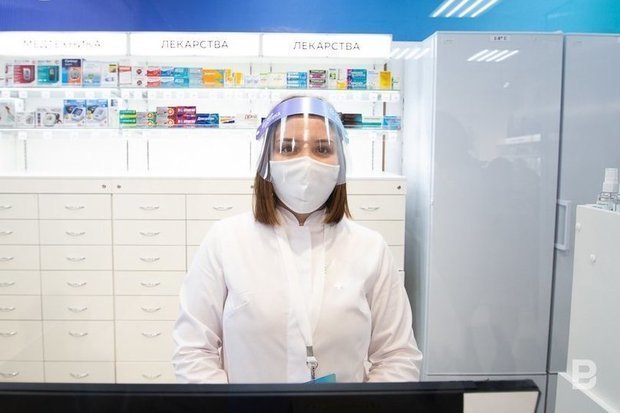Tatarstan residents — about subsidised medicines: ‘They issue them with a fight and only partially’
They are trying to solve the problem of shortage of medicines for beneficiaries of the republic by reducing the dosage of drugs

Tatarstan beneficiaries who have not been able to receive the medicines they are entitled to for months have applied to the editorial office of Realnoe Vremya. A number of expensive drugs have not been available since last year — for the treatment of epilepsy, osteoporosis and osteodystrophy, there are also not enough muscle relaxants and therapeutic infant formulas. Read more about the causes of the shortage of medicines, the measures taken to eliminate it, and the prospects for solving the problem in our material.
“Please render assistance”
Realnoe Vremya has already told how a resident of Almetyevsk, Rasima Asanova, who suffers from renal insufficiency and lives exclusively on hemodialysis, does not receive the necessary amount of the drug, Epoetin beta, in the right amount. It is responsible for the production of red blood cells and prevents the development of anemia. The issue was resolved only for a while, and the woman was again faced with the lack of medication:
“After the publication, the situation has improved," Firuza, Asanova's daughter, told the publication. “However, now we have problems again: for the third week we have not been able to get medicine at the pharmacy. In the polyclinic, my mother was prescribed a prescription for the next period, while the previous prescription is still lying motionless. The pharmacy said when the medicine come, they would call.”
The family cannot buy the drug at their own expense, and even if there were money, it is impossible to buy it now. In Almetyevsk pharmacies, Epoetin beta is absent, the analogue — Erythropoietin — costs from 6,9 to 8,5 thousand rubles. Asanova cannot afford to bear such expenses every month.
At the time of preparation of the article, there was no Epoetin in pharmacies in Kazan, Erythropoietin was offered under the order — 10 ampoules for 9,5 thousand rubles. This is an unrealistic amount for two women living on about 35 thousand rubles, one of whom supports three children, and the second is a disabled person who needs not one, but many far from cheap medicines.
“Medicines for beneficiaries are delivered to our pharmacy on Thursdays," says Firuza. “If Epoetin is not delivered this Thursday, I probably will have to complain.
Many Tatarstan beneficiaries did so. On the People's Control portal, there are complaints about the absence of other vital medicines.
“My granddaughter is a disabled person with a diagnosis of histiocytosis. The child was prescribed enteral mixtures, which have not been provided to us until now, it is impossible to buy these mixtures ourselves, since the child's mother receives a pension for caring for a disabled child. I ask you to render assistance," wrote Lilia Z., a resident of Kazan, a month ago.”

Histiocytosis is a rare and aggressive disease characterised by abnormal reproduction and accumulation of special cells — histiocytes. As a result, the liver, spleen, lungs, and bone tissues are affected. In such situation, baby food prescribed by a doctor is needed today, now, but the Tatarstan Ministry of Healthcare, responding to the application, suggested waiting for it for almost three more weeks.
And it's not a fact that after three weeks the necessary mixture is given to the child or will be given soon. Because under such responses of the Ministry of Healthcare to applications for the absence of medicines, comments have already begun to appear, from which it follows that promises of this kind are not always fulfilled.
“The approximate time of import into the Russian Federation is unknown”
“There is no preferential medicine Syndopa in the pharmacy again," Ilshat G. from Naberezhnye Chelny complained on March 6. “We still haven't received the Syndope for December, January and February. We have to buy analogues at our own expense.”
“The patient will be provided with the necessary medication on 28 March, 2023," the Ministry of Healthcare promised in response to this on March 10. And they marked the application with a green tick and a remark: “The application has been resolved.”
But on March 30, Ilshat G. objected: “The patient has not been provided with medicines. I ask you to return to this issue again.”

On April 3, the tick was in place, the application did not change the status of “Solved” to the more appropriate one, and there was still no Syndopa. And it could not be there: it was not for nothing that the website of the Ministry of Healthcare in the section “Information on the availability of medicines” it was reported about Syndopa back in February: “The drug is in a defect, the approximate time of import into the Russian Federation is unknown.”
The antiepileptic drug Depakin is available in Kazan pharmacies. But, like baby food, it is sold only for “live” money.
“There is a prescription on hand for receiving the drug Depakin, but it has not been in the pharmacy for about two weeks," Rail G. complained. “The pharmacy also reported that the medicine has not been even ordered and it is not expected in the near future.
“Dear Rail G., you will be provided with the Depakin drug on 20 March, 2023," the application was “closed” on March 7 in the Ministry of Healthcare. There was no comment from the applicant on Gosuslugi, but he did not put a “thumbs up” under the reply. So whether this application was closed reasonably or not is a question.

“Why is it necessary to beg, why are they cheating?"
There are also many appeals for the drug Alfacalcidol — the drug that restores vitamin D3, which is very important for the disease that Leysan Z. suffers from — malignant neoplasm of the thyroid gland. The first time a woman turned on February 15, and it was literally a cry of the heart:
“I can't get the drug. The pharmacologist has been saying for the second year that there are no drugs. In 2022, they were issued three or four times. The pharmacologist calls and says that in a week there will be a drug transfer, but they do not bring it to the pharmacy. Why there is no drug? If there is, then the dosage is 0,25 units? I need 3 units a day.”
The Ministry of Healthcare “solved” Laysan's application with the help of a promise: “You will be provided with the necessary medication on 6 March, 2023.” “It is 6 March today, and I still can't get the drug," the woman left a comment at the time appointed by the department and applied again: “The 20th polyclinic cannot provide me with the drug. The pharmacologist reports that there are no medications. Why? In January I received 40 units instead of 90, in February — 0 (a prescription for 5 packages instead of 6 was given, no medicine), in March — 0. Why is it necessary to beg, why they deceive, why the dosage is very small?"
“The last time on 14 March 2023 you received the drug Alfadol, capsules, 0,25 mcg No. 60 in the amount of 5 packages in pharmacy No. 2 of SUE Tattekhmedpharm," the department reminded her. “Yes, I did. But in January they did not give it, in February they gave only 2 packages, in March — 5. In 3 months I should have received 18 (!) packages instead of 7. I bought 11 packages with my teacher's salary. Why do they partially give it only with a 'fight' and only partially?" the patient was indignant.
And it is not surprising: officials have saved well on the beneficiary — 30 capsules of Alfadol with a dosage of 0,25 mcg cost 184-286 rubles (website data of 003rt.ru ). The woman was given a total of 1,288 rubles worth of drugs in three months (if it is calculated at the lower price level), while they should have been 3,312 rubles.
“We ask you to find out the reason for the late delivery of the drug and contact the author as a result," Saria Saburskaya, the Commissioner for Human Rights in the Republic of Tatarstan, drew a line under this dialogue. Now the main thing is that, having contacted Laysan Z., the doctors did not argue with her, but ensured that she received the medicine in the right amount.
“We are not removing the appeal from control until the issue is really resolved”

The Ombudsman stressed that in the same way, appeals regarding the appointment of a specialist doctor, examinations, and other medical manipulations remain under control until the logical conclusion of the situation. She also added that the results of the monthly assessment of the quality of medical services for March 2023 have just been summed up:
“It is proposed to evaluate the quality of services on a five-point system. In March, about 37 thousand ratings were received from patients, and in general they gave doctors a solid four. This is significantly better than in February, when the final score was 3,6 points.”
Medicines purchased “in the volume of applications”
“In accordance with the requirements of the federal law 'On the contract system in the procurement of goods, works, services for state and municipal needs', orders for the supply of medicines are placed under an international nonproprietary name," the Ministry of Healthcare of the Republic of Tatarstan answered the question of Realnoe Vremya about the reasons for the lack of medicines for beneficiaries. “Medicines are delivered to pharmacies by trade names based on the results of an auction. Medicines with the same international nonproprietary name contain the same active substance. As of April 4, 2023, the drugs Levodopa+[Carbidopa] (trade name — Syndopa) and Levodopa+Benserazide were registered in the State Register of Medicines. According to the manufacturer, currently the drug Levodopa +[Carbidopa] is in a defect, the time of import into the Russian Federation is unknown. To provide federal beneficiaries in the first half of 2023, the drug Levodopa+ [Carbidopa] was purchased under another international nonproprietary name — Levodopa+Benserazide (trade name — Benziel).
The Ministry of Healthcare assured that Alfacalcidol (trade name — Alfacalcidol Canon), Valproic acid (trade name — Depakin), Botulinum toxin (trade name — Xeomin) were purchased for federal beneficiaries in the first half of 2023 “in the volume of applications submitted by medical institutions”.
“Currently, procurement is being carried out to provide the preferential category of citizens in the second half of 2023," the ministry said.
A source of Realnoe Vremya in one of the Kazan polyclinics said that there are not enough medicines for beneficiaries not only because of the delay in supplies, but also because of insufficient funding of the federal programme to provide the necessary medicines. The standard of financial costs established by the Government of the Russian Federation for 1 patient per month is only 1007,9 rubles, while the cost of treatment can be up to 34 million rubles.
“In 2021, the list of medicines for federal beneficiaries was expanded to the list of vital and essential medicines, and additional funding for their purchase is not provided," the source added.